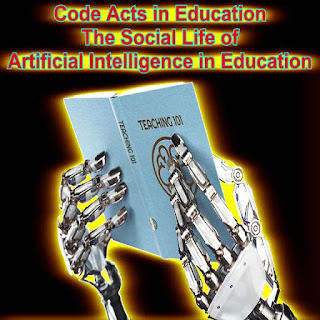Code Acts in Education: The Social Life of Artificial Intelligence in Education
Artificial Intelligence (AI) has become the subject of both hype and horror in education. During the 2020 Covid-19 pandemic, AI in education (AIed) attracted serious investor interest, market speculation, and enthusiastic technofuturist predictions. At the same time, algorithms and statistical models were implicated in several major controversies over predictive grading based on historical performance data, raising serious questions about privileging data-driven assessment over teacher judgment.
In the new special issue AI in education: Critical perspectives and alternative futures published in Learning, Media and Technology, Rebecca Eynon and I pulled together a collection of cutting edge social scientific analyses of AIed. The purpose was to add alternative analytical perspectives to studies of AIed benefits, and to challenge commercial assertions that AIed will solve complex educational problems while accruing profitable advantage for companies and investors.
Like AI in general, AIed is social and political. It has its own long history and a complex present ‘social life’, and it is being developed in the pursuit of future visions of education. AIed has emerged in its current form from decades of prior research and development, from technological innovation, from funding practices, and from policy preoccupations with using educational data for various forms of performance measurement and prediction. Far from being merely a future vision, AIed is already actively intervening in education systems — in schools, universities, policy spaces and home learning settings — with effects that are only now coming into view.
Yet the growth in critical studies of AI in other sectors (such as labour automation, healthcare CONTINUE READING: Code Acts in Education: The Social Life of Artificial Intelligence in Education | National Education Policy Center


